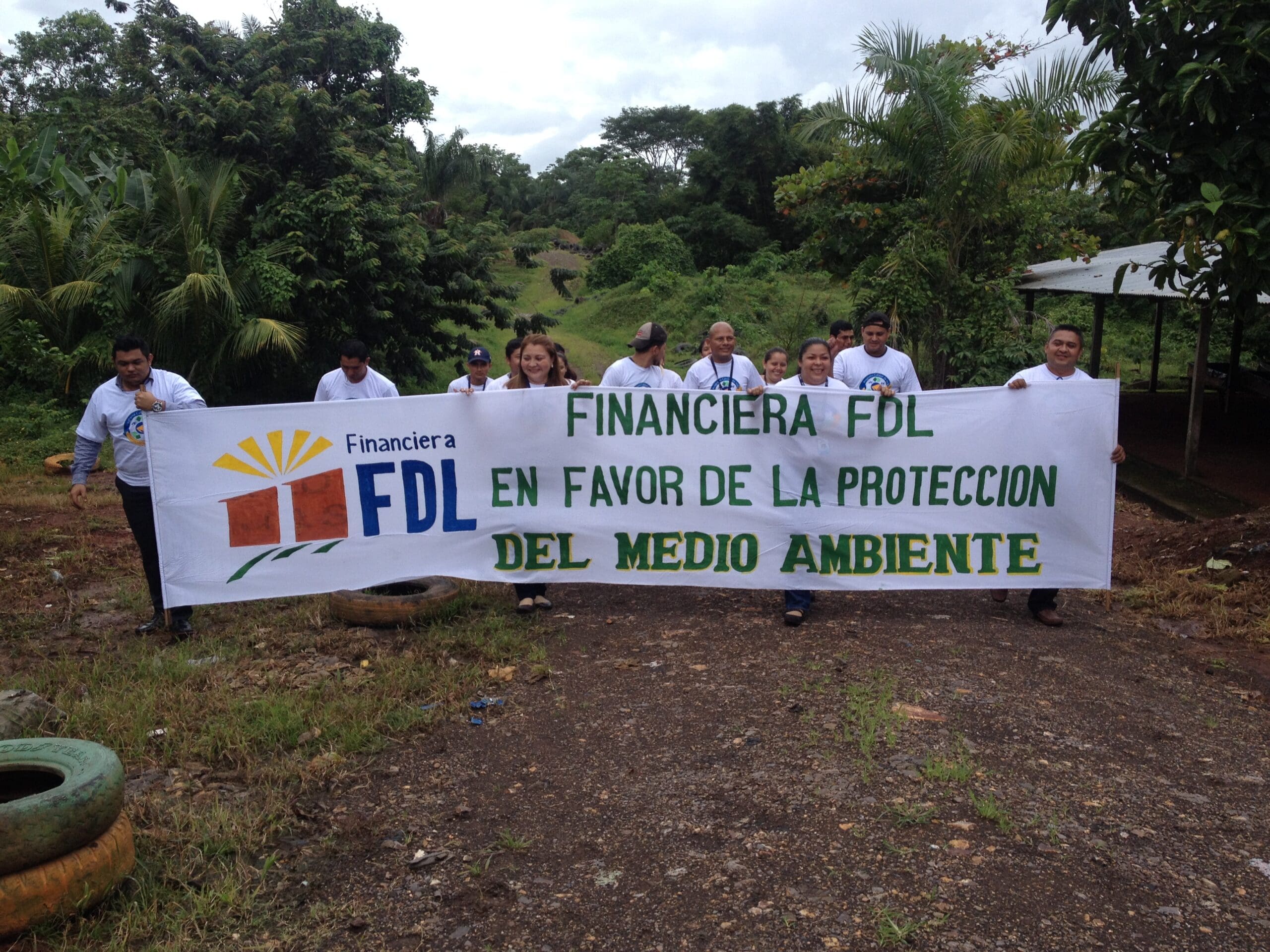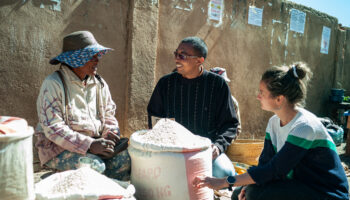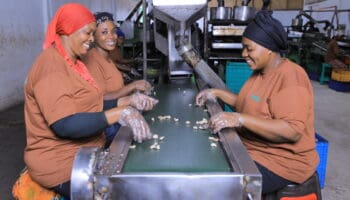
For many years now, SIDI has been committed to the continuous improvement of its social and environmental performance (SEP) and that of its partners. To this end, we monitor a number of economic, social and environmental indicators each year, which we analyze and publish in our social report and our social responsibility report. However, we know that measuring impact itself is a far more complex challenge, but one that is nonetheless necessary if we are to track our progress towards our social objectives. That’s why SIDI has been testing a number of innovative models in recent years to advance our understanding of this crucial issue.
SIDI participated in the microfinance index of 60 Decibels, a company specializing in impact measurement based on listening to beneficiaries, thanks to funding from the Fondation Actes. It was a way of thinking about a new way of apprehending the results of its partners in the field, through analysis of the perception of change felt by the final beneficiaries.
The index is based on direct feedback from customers of over 100 microfinance institutions worldwide. The 60 Decibels team has developed a questionnaire to survey the beneficiaries of these institutions on their perception of the impact on their lives of the financial services to which they have access. This enables each participating institution to understand not only its strengths in the eyes of its customers, but also where there is still room for improvement, and to benchmark itself against its peers.
The participation of SIDI’s partners Kafo Jiginew and Fondo de Desarrollo Local in this initiative is already proof of their commitment to their clients and their desire to improve their practices in order to maximize their impact.
Kafo Jiginew is a mutual savings and credit institution based in Mali, in existence since 1987. Its mission is to give low-income Malians access to local financial services. Kafo Jiginew has formed a partnership with SIDI since 2017, and in recent years has demonstrated a willingness to evaluate the effects of its activity on its beneficiary populations. The microfinance index was an ideal way to start tackling this issue, due to the ease of the process and the limited cost compared to other impact study models. The results are very positive: Kafo ranks4th among Sub-Saharan African institutions, and scores impressively on almost every dimension of the report.
Kafo Jiginew customers seem to be particularly satisfied with the development of their business and thus their income since the first loan granted by the institution.
To the question “Has the revenue you earn from your business changed thanks to Kafo Jiginew’s services?”, 63% of respondents claim to have seen a significant increase in their revenue, compared to an average of 22% in the benchmark of all institutions participating in the index.
For 54% of customers, the fact of having been able to consolidate or grow their business or activity is what has most influenced their quality of life, through the generation of more profits enabling them to meet the needs of their family. The financing provided by Kafo also enables customers to generate local employment. Thus 36% of respondents claim to have hired at least one extra person.
Fondo de Desarrollo Local (FDL) is a leader in Nicaragua’s microfinance sector. Since its creation, first as an NGO in the 90s, then as a regulated financial company from 2016, FDL has been committed to improving the living conditions of the most vulnerable, by providing loans, training and support services.
In partnership with SIDI since 2015, FDL had already carried out an initial study with 60 Decibels in 2021, which focused on understanding how its customers had been affected by the Covid crisis, with the aim of setting up services to help them bounce back from this difficult context. This second study, launched in 2023 as part of the Microfinance Index, is part of FDL’s wider drive to collect recurring feedback from its customers, in order to improve over the life of their new strategic plan.
FDL’s results are also very encouraging, with the institution ranking 5th in the Index’s Latin American MFI rankings.
Almost all FDL customers say they have seen an overall improvement in their living conditions, and 60% of them consider this improvement to be particularly significant. FDL is well above the benchmark for this question, at 23%.
For approximately half of the respondents, this improvement is mainly due to the fact that the loan enabled them to buy or build their home, or carry out the necessary renovations. For 29% of them, the financing was used to grow their business. Finally, 9% of respondents say their quality of life has improved thanks to their ability to cope with everyday problems and improve their living comfort as a result of the financing. To the question “How has your quality of life improved thanks to FDL financing?”, one customer replied: “When I needed it, they gave me a loan to renovate the house and the store. Now I have a fireplace and can cook without smoke. It’s improved my health and I don’t bother the neighbors. I built a wall, my house is safe, and the store is more attractive.”
Although the study model proposed by 60 Decibels is more a perception study than an impact study in the strict sense of the term, it does give a voice to beneficiaries, and enables us to begin assessing the effects of an institution, in a way that is simple and relatively inexpensive for institutions. This test of the research model proposed by 60 Decibels was therefore conclusive for the partners, whether for Kafo, a partner rather new to monitoring their social performance and impact, but with very positive practices and highly satisfied customers, or for FDL, a more experienced organization seeking to measure its impact over the long term.
SIDI was also pleased with its partnership with 60 Decibels, and will be renewing this cooperation by taking part in the Coffee Index, a new initiative aimed this time at coffee cooperatives and SMEs in East Africa, and designed to assess the perception of their producer-suppliers regarding the services offered to them.



